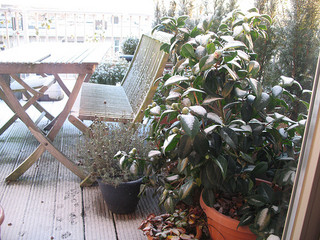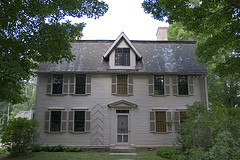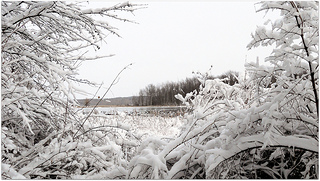Usually 4 p.m. glares on my windshield as I head to the Hollywood Hills Forest Lawn Memorial Park. I am 75 miles per hour on the 134, maybe more. Others fly by me, impatient. The temptation to catch up to them is strong, as always. But I stay below the eighties, as though the seventies are the right glide, on Lenny Kravitz tunes. At the exit, flower vendors on foot wave roses and chrysanthemums. Their nearest competition is the flower shop at the gate, less than a mile away. You’d think they’d sell for bargain. But I buy a bunch or two anyway. It beats walking to the shop, and ringing for someone to come out when you’re ready to pay.
Dispatches
Headstone Stories
By JAYNE MORGAN
I grew up in graveyards. We had one at the bottom of our farm drive and on weekdays I would walk through it to catch the bus to school and then back again on the way home. On Saturdays I would be sent on a mission to rake through the piles of recently discarded wreaths to retrieve the plastic ribbons. Anyone receiving a wrapped gift from our family could, if they looked carefully, have spotted the faint marks from the rusted wires and the creases from previously tied bows.
A Painter Brought to Life
By TODD PITOCK
In Telč, a town about two hours from Prague in the Czech Highlands, rain beat down like a parade of drums. Zdenka Noskova, the woman I had come to see, arrived at my hotel in the main square to take me to a memorial she had created.
At 37, Zdenka had a demure manner. She wore her auburn hair short, and dressed in a long skirt. She worked in a print shop, though the lasting imprint she’d made had been a walking trail, and later, a memorial she’d created to the memory of a Jewish painter who died in the Holocaust.
The Fiction and Nonfiction of the St. Petersburg Pier
By SCOTT GEIGER
1.
The modern novel is probably an unintended consequence of nineteenth-century European cities. James Wood glosses the idea in his handbook How Fiction Works. The breakthrough narration in Madame Bovary, for instance, a stylish authorial voice that seemingly dissolves into the consciousness of its subjects on a wash of image and detail, corresponds to a boom in European industrial urbanism. Its vector is the flâneur: the young and loitering, the unemployable café-sitters, the arcade-browsers. These onlookers adapted their eyes to the city’s “large, bewilderingly various amounts of detail,” says Wood.
Alaska, Massachusetts
Beyond the bridge of Highway 91, beyond the levee and the last line of houses at the outskirts of town, civilization goes to rural scenes. First you pass a patch of low trees; then a small paddock and barn where two horses live; and then you come to the cornfields — wide, flat, golden and stubbly by the riparian woodland of the Connecticut River. I’ve always wanted to come to these fields to see the stars, but the landscape is lonely, and I would be afraid to come alone at night.
A Not-so-Failure in 2 Parts

excerpt from the ongoing Failures Diary
i go to pick up my kid
at his crèche
that’s a fancy european word
for daycare
What Diamonds Can Do
By CLAIRE KEYES

Some can write poetry
on glass windows like Sophia Hawthorne
at the Old Manse with her wedding ring.
I’m told this was common in the 19th century.
But, for me, reading it was like finding a note in a bottle
picked up on the beach. I felt a kind of awe.
Drawing Snow
By CURTIS BAUER

There is a bend to everything.
Edges melt into curves like winter
and then spring, snow sways from
white to gray, powder to crust
and too many dialects make noise
Spices, Butter, and Earth
By LEE GULYAS
The chicken vendor’s stacked cages combine manure and death. Flatbread browning in the baker’s oven wafts smoke and flour. Metallic hints of thrown-out bean cans, misty exhaust of diesel trucks, heady tangs of eucalyptus trees. Even from inside our house the smell of fire is usual, from water pipes for smoking dried fruit and tobacco, whiffs of the neighbor’s incense, a sniff of matches and candles each time the electricity blacks out. Once we watched neighborhood kids chase after a rolling tire set afire, orbiting whirls of black and flame until the blaze consumed the tire, which wobbled in circles, then lay motionless on the ground. Children watched while acrid plumes of soot spread, lingering bitterness infusing the air.
The Road to Thunder Bay, Pt. 3
This is the final installment part of a three-part dispatch. Pt. 1 and Pt. 2 can be found on The Common’s website.
The first order of business was to find the source of the leak. I went downstairs to the parking lot and started the car. Water pooled on the ground in the time it took me to get out and raise the hood. Finally, I nailed it down to a blown intake gasket. A spot about six inches long between the engine head and the intake manifold that bled water and antifreeze.










